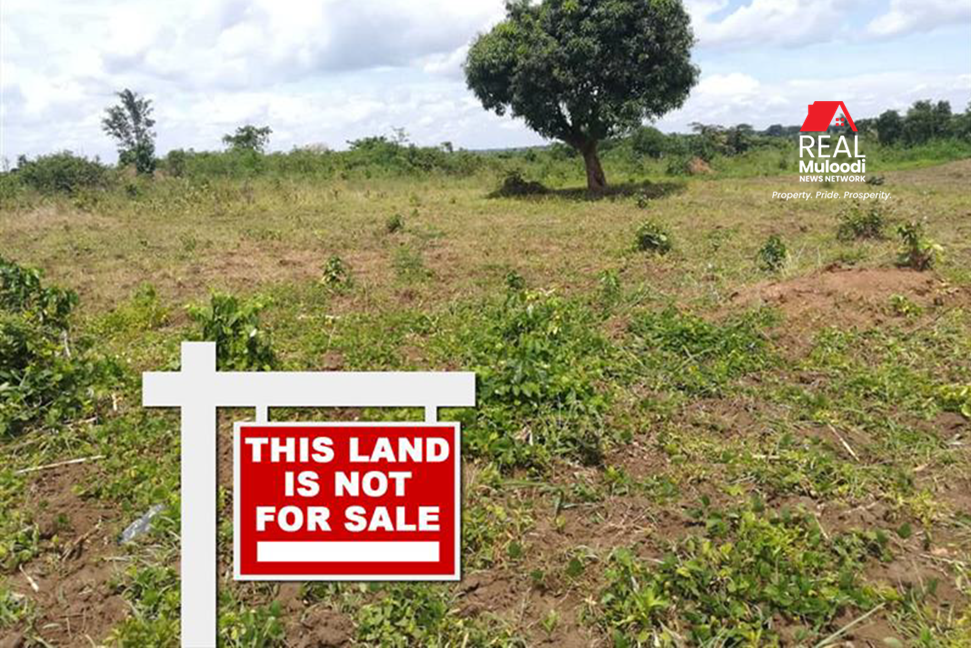UGANDA, Kampala | Real Muloodi News | Uganda, a country blessed with natural beauty and abundant resources, is grappling with corruption, a grave issue that hampers its image and development prospects.
This article delves into the repercussions of corruption on real estate and land-related matters in Uganda. A recent report by the World Justice Project (WJP) has ranked Uganda as one of the world’s most corruption-ridden countries, impacting various sectors, including real estate and land ownership.
“Our previous research estimates that 1.5 billion people are unable to solve their legal problems,” WJP Executive Director Elizabeth Andersen said, “so it is particularly alarming that so many justice systems got even weaker in 2023. If we are to reverse course, justice systems need a paradigm shift to a people-centered approach, putting the needs of the people they are intended to serve first.”
Corruption in Real Estate
The so-called “Mabati scandal” brought the issue to the forefront. Members of Uganda’s cabinet were caught stealing iron roofing sheets intended for poor and vulnerable citizens in Karamoja. Minister for Karamoja, Mary Goretti Kitutu, was embroiled in this scandal, along with other prominent figures.
The “Mabati scandal” underscores how corruption can infiltrate various aspects of real estate and land issues. The theft of essential building materials, meant for poverty alleviation programs, highlights the vulnerability of land and property resources to corrupt practices.
Land Grabbing
Corruption in the real estate sector often takes the form of fraudulent land transactions, illegal land acquisitions, extortion and bribery related to property development, forged land titles, illegal land sales, and land disputes, forced evictions, and a lack of legal protection for vulnerable communities.
Corrupt practices can involve both public officials and private individuals, making it a complex problem contributing to a lack of security for landowners.
Well-connected individuals, often with ties to political elites, exploit their influence to unlawfully seize land from its rightful owners.
Impact on Land Owners
The impact of corruption on landowners is substantial. When individuals or groups engage in corrupt land transactions or land grabbing, it can lead to forced displacement, insecurity of land tenure, and disputes.
Communities often find themselves defenceless against powerful interests, which can have devastating consequences for their livelihoods.
Mob Justice and Land Issues
The rise in cases of mob justice in Uganda is linked to the lack of trust in the formal criminal justice system’s ability to administer fair and timely justice.
Mob justice involves extrajudicial punishment, where a person suspected of wrongdoing is subjected to violence by vigilantes or a crowd, without a fair trial.
Recently, there has been a spate of mob attacks, including on members of the security forces involved in land grabbing wrangles.
In a recent incident, residents of Kasokwe village in Galilaaya Sub-County, Kayunga District, pounced on soldiers of the UPDF.
The angry civilians, who are wrangling over family land, accused the soldiers of guarding the land interests of their tormentor, GM Sugar factory.
The case involves a soldier called Major Baker Kimeze, who is also a traditional ruler. His siblings accuse him of selling off family land to GM Sugar without their consent.
Cases of mob justice often arise from land disputes and issues related to land grabbing. The lack of effective legal protection and redress mechanisms contributes to this disturbing trend.
Efforts to combat corruption in the real estate and land sectors are essential for Uganda’s development and the protection of its citizens.
Effective rule of law can reduce instances of corruption, alleviate poverty, and safeguard the rights of the population.
“The world remains gripped by a rule of law recession characterized by executive overreach, curtailing of human rights, and justice systems that are failing to meet people’s needs,” said WJP co-founder and president William H. Neukom. “People around the world are paying the price.”
The rule of law is essential for accountable government, economic development, and the protection of fundamental rights. It forms the foundation for a just and peaceful society, and addressing corruption is integral to this framework.
Corruption remains a significant challenge for Uganda, particularly concerning real estate, land ownership, and land grabbing.
The government must address corruption to secure land rights, protect vulnerable communities, and promote economic development.
By focusing on the rule of law, Uganda can work towards a more just and equitable society.
The government needs to take strong measures against corruption and implement policies that safeguard the rights of its citizens, particularly those related to land and real estate.
Only then can Uganda improve its global image and create a more prosperous and equitable future for its people.
READ MORE LIKE THIS:
Kampala District Land Board Chairperson Remanded for Fraud Charges
Court Relaxes Bail Terms for Minister Lugoloobi, Allowing Travel for State Duties




